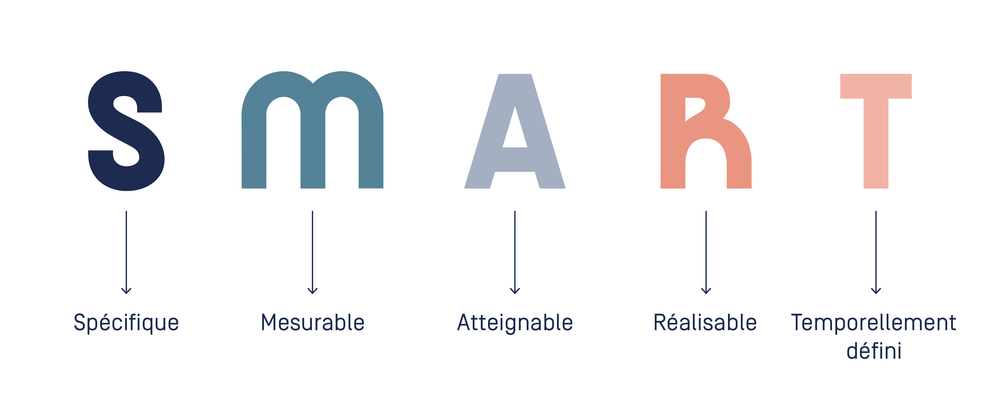Teamwork requires know-how, respect and a lot of tact. To put the common goal before his own, each member must maximize his performance within his team. Teamwork leads not only to the growth of the company, but also to the progress of each member of the team.
What is meant by teamwork
A team is a collection of individuals with different personalities and skills. Efficient, motivated or even dynamic, she must share values to carry out her project. When we speak of teamwork, we refer to work where collaborators are brought together for the same objective. Choose your manager and organize your group harmoniously. Working in a team also means knowing how to communicate and trusting each other. This is the basis of well-being at work .
The steps for a better performance within the company
Step 1: Set the objective to be achieved
Working in a team requires a common goal for each member. Precise and achievable, this objective must be clearly defined and known to everyone. By doing so, the team can trace the different steps to follow in order to get back to the results. Also list the material, financial and human resources. In addition, knowing the goal to be achieved increases the personal motivation of each employee.
Fill out the SMARTs when setting up your goal. Specific , it must be comprehensible so that it is legitimized by each member and by all. By being personalized, the objective must be directly related to the work of the team itself. Check that your objective is measurable , that is to say quantified or qualified. To do this, it is necessary to define a threshold and find the level to be reached or the value to be met.

An achievable goal must still be big and ambitious for the company. Motivating, it will present itself as a challenge for each member of the team. By being realistic, it is pragmatic and avoids the possible abandonment of members. Also set a temporal goal, bounded by time with a deadline and milestones. You can develop a schedule and associate a time for each stage of your project.
Step 2: The leader, the team manager and the work organization
The leader is the one who takes the initiatives and leads his team. Well trained, he will have more legitimacy if he is chosen by the very members of his team. By committing to this position, he must have the moral strength to encourage and motivate his collaborators. Also vote for a leader with a good sense of communication with the whole group. To lead his team, the leader must have a good overall vision and be aware of the common objective.
Management is different from leadership, but a manager may or may not be both. Qualified, respected, he is the one who defines the objectives and sets the limits. By remaining firm and non-authoritative, he assigns roles and tasks for better business performance. Choose a manager capable of setting an example, uniting his team and ensuring good cohesion. In addition, the manager is the one who will ensure the union and create the team spirit of his colleagues.
Teamwork and good organization rhyme together. Clear, precise, the organization allows each member to have a well-defined field. By organizing the work of the group, everyone knows their task and their responsibilities and this avoids misunderstandings. Knowing your mission and your scope of work allows you not to lose sight of your objective.
Step 3: Communication, key to performance
Establishing good communication is essential within a team. essential, important, communication is the means of interaction between employees. By knowing the missions and skills of each, it is easier to ask or provide help to other members of his team. Improve the performance of your group by considering internal communication as a pillar of your company. Internal communication is also a means of strengthening cohesion and trust within a team.
Knowing how to listen and not pass judgment is the golden rule of communication. Alternatively, a team is made up of members with different works and thoughts despite the common tools and references. By listening to other employees, it is possible to learn from them and find a better solution together. Learn to consider all ideas without focusing on just one. With communication, personal barriers are overcome.
Communicating transparently is the operating rule of teamwork. Indispensable and enriching, it allows the whole team to be informed and to situate the progress of the project. By working as a team, the one who receives information must transmit it to all the other members. Bring your opinion and collect those of other members to allow unanimous decision-making. Good internal communication contributes to a better quality of life at work.
Team building for team cohesion
Team building, or team building in French, is a way to build trust between the employees of a group. Ideal, it helps to develop the spirit and values relating to the team. By carrying out this reinforcement, the other members and you will do activities, games and training. Opt for activities that are both entertaining such as escape games or sports activities such as The Mud Day. You can also prepare cooking workshops to put the whole team on an equal footing when faced with a recipe.

The benefits of teamwork
Task optimization
Teamwork involves the distribution of tasks according to the skills of each member of the group. Practical and optimized, this way of working allows employees to focus on their missions. By acting as a team, no member will be considered multitasking and dynamism is assured. Bring out the best in every team member for maximum performance. You are thus sure of the right direction that the project is taking.
The exchange of ideas
The advantage of teamwork is to be able to share ideas and compare opinions. Constructive and necessary, the team must brainstorm to collect everyone's perceptions and opinions and deduce decisions. When facing an obstacle, team discussions are the best way to find the best solutions. Seize the opportunity of collaborative work to stimulate innovation! Surrounded by your collaborators, you will have many perspectives and discover new horizons of ideas.
Develop skills
Collaborative work is a form of peer learning. Instructive and fruitful, it leads to learning between team members. By being in a group, members receive and share skills and knowledge. Benefit from collaborative work by constantly exchanging with your team. You receive knowledge by asking your collaborators for help, you improve yours by sharing them.
Strengthen corporate culture
Leadership and management of a team requires skill and tact. Adapted and well thought out, the work environment must be favorable to employees. An acoustic booth can provide a private space for important discussions and confidential business meetings.
By evolving within the company, the members of a team must feel at ease, listened to and able to give the best of themselves. Allow them to evolve in a friendly atmosphere by cultivating team spirit and camaraderie. For this, you can, for example, devote time to sharing values and experiences.
Make each member more effective
Being productive helps deliver innovative, high-quality results. Beneficial, teamwork allows employees to use their resources and achieve objectives quickly. By uniting as a team, the fluidity and efficiency of work increases the growth of the company. Centralize your team's activities in work management to quickly resolve issues. Thus, each member can visualize the objective to be achieved, the chronology of the project and the persons in charge of all the tasks.
Increase employee engagement
Working in a well-organized team is pleasant. Effective, it allows employees to be fulfilled in the performance of their individual and group activities. By encouraging the adoption of team spirit, the professional and personal involvement of an employee is positively affected. Remember to multiply the exchange of ideas with your team, this will help everyone to express themselves. Here again, communication is the essential keyword for collaborative work. Well-being at work is an essential point that should not be minimized.
Strengthen the capacity to make decisions
Decision-making requires more general skills. Essential, it requires a maximum of knowledge and skills to produce a relevant and persuasive opinion. By evolving as a team, each member learns from his colleagues and thus gains more knowledge through sharing and internal communication. Then become autonomous by making decisions with confidence and keeping your group sharing for granted. You can practice decision-making by first proposing your solutions in meetings.
Good teamwork practices
Strengthen team cohesion
To ensure the proper functioning of group work, team spirit is essential. Discussions and sharing offer all employees the opportunity to discover and get to know each other. By participating in this exchange, the commonalities bring us closer while the differences are the marks of complementarity. Organize company activities such as afterworks, breakfasts in order to encourage informal discussions. If the members of the team get along well, the proximity will arise with the pleasure of working together and will create a real team spirit.
Give regular feedback
Maintaining motivation and fostering commitment is essential in a company. Giving feedback urgently is necessary to the group and individually is essential. Indeed, by taking this initiative you are celebrating mutual aid or highlighting the investment of an employee. It is also an opportunity to trace neglected work and understand the causes in order to propose possible solutions.
Trust your team
Trust is hard to earn and very easy to lose. The latter must encourage, motivate and increase the commitment of a team. Working in a company, a good manager and his team must show that they trust each other.
Offer responsibilities and promote group decisions and encourage them to be autonomous and to make decisions. Even if it is important to delegate, this does not mean leaving them in perfect autonomy. On the contrary, getting involved and being present will make you a good manager.





